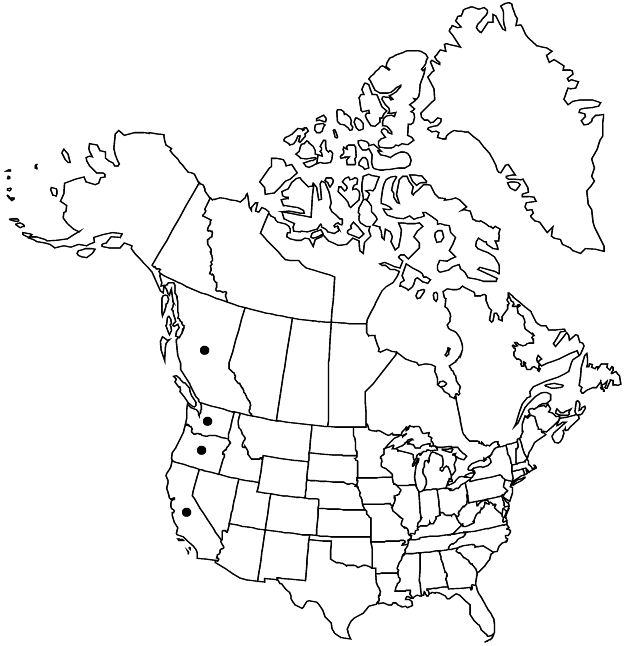Difference between revisions of "Viola riviniana"
Iconogr. Bot. Pl. Crit. 1: 81, plate 95. 1823.
FNA>Volume Importer |
imported>Volume Importer |
||
| (2 intermediate revisions by 2 users not shown) | |||
| Line 28: | Line 28: | ||
|elevation=0–200 m | |elevation=0–200 m | ||
|distribution=B.C.;Calif.;Oreg.;Wash.;Eurasia;nw Africa;introduced in Australia. | |distribution=B.C.;Calif.;Oreg.;Wash.;Eurasia;nw Africa;introduced in Australia. | ||
| + | |introduced=true | ||
|discussion=<p><i>Viola riviniana</i> has become established in several states on the Pacific Coast. It is cultivated and sold through nurseries in the United States. In the nursery trade in California and elsewhere, it is incorrectly referred to incorrectly as <i>V. labradorica</i> ‘Purpurea.’ In some plants shoots arise from adventitious buds on the roots (A. R. Clapham et al. 1987; T. Marcussen and T. Karlsson 2010).</p> | |discussion=<p><i>Viola riviniana</i> has become established in several states on the Pacific Coast. It is cultivated and sold through nurseries in the United States. In the nursery trade in California and elsewhere, it is incorrectly referred to incorrectly as <i>V. labradorica</i> ‘Purpurea.’ In some plants shoots arise from adventitious buds on the roots (A. R. Clapham et al. 1987; T. Marcussen and T. Karlsson 2010).</p> | ||
|tables= | |tables= | ||
| Line 52: | Line 53: | ||
|publication year=1823 | |publication year=1823 | ||
|special status=Introduced | |special status=Introduced | ||
| − | |source xml=https:// | + | |source xml=https://bitbucket.org/aafc-mbb/fna-data-curation/src/2e0870ddd59836b60bcf96646a41e87ea5a5943a/coarse_grained_fna_xml/V6/V6_274.xml |
|genus=Viola | |genus=Viola | ||
|species=Viola riviniana | |species=Viola riviniana | ||
Latest revision as of 22:20, 5 November 2020
Plants perennial, caulescent, not stoloniferous, 1.8–30 cm. Stems 1–5, erect, ascending, or decumbent, glabrous or puberulent, on caudex from subligneous rhizome. Leaves basal and cauline; basal: 3–5; stipules subulate or lanceolate, margins fimbriate, apex acute to acuminate; petiole 2.5–12 cm, usually glabrous, rarely puberulent; blade ovate to reniform, 2.3–5.5 × 2.6–5.3 cm, base cordate to deeply cordate, margins crenate, eciliate, apex acute or obtuse, abaxial surface glabrous or sparsely puberulent, adaxial surface usually sparsely puberulent, sometimes glabrous; cauline similar to basal except: stipules ovate or lanceolate, margins fimbriate, apex long-acuminate; petiole 1.3–6 cm; blade ovate or broadly ovate, 1.8–5 × 1.5–4.2 cm, apex acute. Peduncles 2.8–10 cm, glabrous, sometimes puberulent. Flowers: sepals lanceolate, margins eciliate; auricles 1.8–2.5 mm (enlarged in fruit); petals violet on both surfaces, lower 3 usually white basally, rarely violet, dark violet-veined, lateral 2 bearded, lowest 13–17 mm, spur white, rarely violet, elongated, 5–7 mm, tip straight or hooked, blunt; style head beardless (surface papillose); cleistogamous flowers axillary. Capsules ovoid or oblong, 8–12 mm, glabrous. Seeds pale to light brown, 1.8–2.1 mm. 2n = 40.
Phenology: Flowering Mar–Sep.
Habitat: Roadsides and trails, sidewalk cracks, parks
Elevation: 0–200 m
Distribution

Introduced; B.C., Calif., Oreg., Wash., Eurasia, nw Africa, introduced in Australia.
Discussion
Viola riviniana has become established in several states on the Pacific Coast. It is cultivated and sold through nurseries in the United States. In the nursery trade in California and elsewhere, it is incorrectly referred to incorrectly as V. labradorica ‘Purpurea.’ In some plants shoots arise from adventitious buds on the roots (A. R. Clapham et al. 1987; T. Marcussen and T. Karlsson 2010).
Selected References
None.